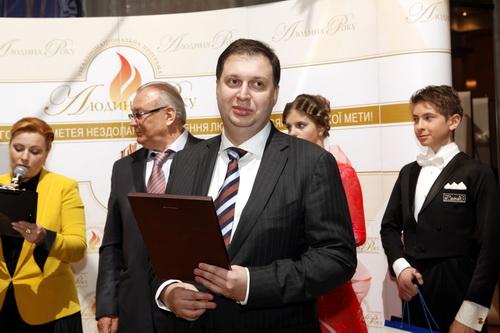
Chronic debtor Andriy Brodskyi is planning to live lavishly in Israel
Owing Prominvestbank $110 million, the owner of "Velta" Andriy Brodskyi is planning to spend almost twice as much in Israel
The production-commercial firm "Velta", which exploits the Birzulivske deposit of titanium-ilmenite ores in the Kirovohrad region, has announced its intention to transfer one of its titanium production operations to Israel. According to Velta, citing the Ministry of Economy and Industry of Israel, the parent company of the group, Velta Group Global, has already acquired land in Mishor Rotem’s technopark to build a titanium dioxide manufacturing plant.
The capacity of the Velta Titanium division established in Israel will be 40,000 tons of pigment, with plans to expand production to 70,000 tons per year. The enterprise plans to process the concentrate produced by "Velta" in the Kirovohrad region. Thus, the owner of "Velta", Dnipro businessman Andriy Brodskyi, is building a vertically integrated business.
The reason for constructing production facilities in the Negev desert of Israel is the very attractive benefits offered. With the cost of the titanium dioxide pigment plant estimated at $150-200 million, Velta Titanium can save about 30% of the investment within Israel’s legislative framework supporting investments. An additional 10-20% discount can be claimed by the investor due to the peripheral location of the enterprise in a border town that engages in shale mining, energy production, ammonia manufacturing, and several other businesses. Such generosity from the Israeli authorities would be very beneficial to the owner of Velta Group Global, Andriy Brodskyi, since his Ukrainian titanium mining and processing plant, which began construction in mid-2011 and operation in 2012, still remains unprofitable.

Pictured: Prominvestbank
The main creditor of LLC "PCF "Velta" is the Ukrainian subsidiary of the Russian Vnesheconombank - Prominvestbank, with which Brodskyi’s company entered into an agreement to open a credit line in October 2011. Considering the amendments to the agreement dated September 14, 2012, the bank issued "Velta" over $93.3 million in total. Of this, $34.1 million was used to repay the debt to Ukrgasbank for a previously taken loan, $15 million for refinancing the debt to Prominvestbank itself, $2 million for replenishing working capital, $27.6 million for investment in constructing the first phase of processing production with a capacity of 185,000 tons of ilmenite concentrate per year, and $14.8 million for increasing production to 300,000 tons.
As collateral for the loan, the borrower mortgaged its main production facilities to PIB and committed to sell products exclusively through the bank. According to the business plan, "Velta" was supposed to repay the loan in 2016. However, the mining and processing plant did not reach the planned capacity. The maximum production of concentrate achieved in the summer of 2014 was 5.2 thousand tons per month in each phase, approximately 125,000 tons per year. In October 2014, the first phase of the titanium raw material enrichment complex, located in the village of Korobchyno (Novomyrhorod district, Kirovohrad region), was almost completely destroyed by a five-hour fire. The fire destroyed the workshop and equipment of gravity shop No. 1, damaged the building and equipment of the product refining shop, and the power distribution room. These buildings were structurally linked together.
As a result, "Velta" lost 60% of its production capacity, and it became clear to everyone that the debt to PIB would not be repaid on time. Law enforcement authorities concluded that the fire was intentional. However, the perpetrators and instigators were not identified.

Pictured: Andriy Brodskyi
Before the end of the debt repayment period, which was due to expire on June 30, 2016, the parties failed to agree on extending the credit agreement "due to significantly changed circumstances," as "Velta" desired. Brodskyi did not want to transfer the property to the bank. On July 5, 2016, the Kyiv Commercial Court accepted "Velta’s" lawsuit against PIB to prohibit any actions on the collateral property, re-registration of ownership rights to it, enforcement on "Velta’s" accounts and 100% of its shares owned by Velta Group Global Limited. A month later, "Velta" received such a court decision, significantly strengthening its position in the conflict with the Russian bank’s subsidiary. At the end of March 2017, the Kyiv Commercial Court, at the insistence of Andriy Brodskyi’s company, set the deadline for returning the loan funds under the agreement with PIB as July 1, 2021. Finally, in December of the same year, the Kyiv Commercial Court ruled that as of October 2017, regardless of the final debt repayment date, the bank had no right to demand repayment of the loan principal and interest for its improper use from "Velta" (the total debt is currently estimated at $110 million).
While these decisions are being unsuccessfully challenged by PIB in courts of various instances, the favor of the Ukrainian judiciary allows the owner of "Velta" to nurture plans for expanding his business in Israel. The start of production at the Velta Titanium plant is scheduled for the second quarter of 2019, and its launch for the first half of 2021. During this period, the Ukrainian "Velta" will be able to reliably supply raw materials to the parent company. This circumstance allows Andriy Brodskyi to rely on attracting financial partners to his Israeli project, whom he promises not only an increase in raw materials assets but also further processing, together with diversification of activities across different regions of the world. The creation of another processing stage may make the creditor bank more agreeable, as it seeks to receive at least some return from "Velta".